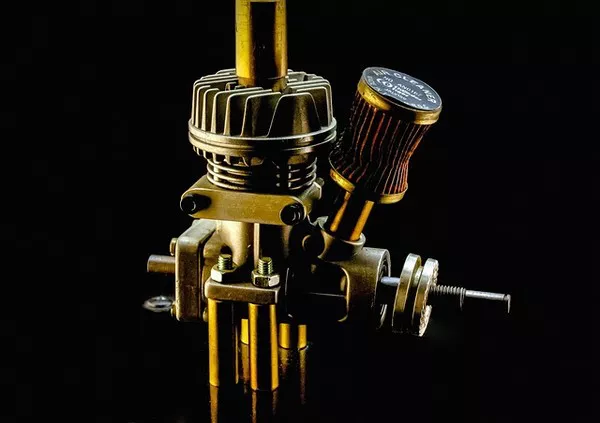In the realm of air conditioning systems, the AC compressor plays a pivotal role in cooling your space efficiently. This critical component is responsible for compressing refrigerant and circulating it through the system, enabling the transfer of heat from inside your home to the outside environment. Understanding how the AC compressor operates and identifying potential issues are essential for ensuring optimal performance and longevity of your cooling system.
What Is an AC Compressor?
The AC compressor is a vital part of your air conditioning system. It is located in the outdoor unit (condenser) and is responsible for compressing refrigerant gas, raising its pressure and temperature. This hot, high-pressure gas then flows to the condenser coils where it releases heat to the outside air. As the gas cools down, it condenses into a liquid and passes through the expansion valve into the indoor evaporator coils, where it absorbs heat from inside the house, cooling the air. The compressor then pulls in the low-pressure refrigerant gas to start the cycle again.
How Does an Air Conditioning Compressor Work?
The compressor operates through a mechanical process involving a motor, piston, and a series of valves. When your thermostat signals the need for cooling, the compressor is activated. The motor drives the piston inside the compressor, compressing the refrigerant gas. As the gas is compressed, its temperature and pressure rise dramatically. This pressurized gas then flows through the system, releasing heat and absorbing cool air, ultimately providing the desired cooling effect indoors.
Top Reasons Why Your Air Conditioner Compressor Is Not Working
There are several potential reasons why your AC compressor may fail to turn on:
Electrical Issues: Faulty wiring, a blown fuse, or a tripped breaker can prevent the compressor from receiving power.
Low Refrigerant: If the refrigerant level is low due to a leak, the compressor won’t function properly as it requires a specific amount of refrigerant to operate efficiently.
Faulty Capacitor or Relay: The capacitor and relay provide the electrical boost necessary to start the compressor. If either component fails, the compressor may not start.
Compressor Overheating: This can occur due to issues like a dirty condenser coil, which impedes heat dissipation, or a refrigerant leak.
How Do I Know if My AC Compressor Problem Is Serious?
Determining the severity of an AC compressor issue requires observation and diagnosis:
No Cooling: If your air conditioner blows warm air or doesn’t cool effectively, the compressor could be at fault.
Loud Noises: Unusual noises like banging, clanking, or grinding coming from the outdoor unit may indicate compressor problems.
Frequent Cycling: If the compressor frequently turns on and off (short-cycling), it could be a sign of an underlying issue.
Visible Leaks or Frost: Leaking refrigerant or frost on the outdoor unit can point to compressor problems.
Understanding these signs can help you gauge whether the issue is minor or requires professional attention.
Troubleshooting AC Compressor Problems
To troubleshoot AC compressor issues, follow these steps:
Check Power Supply: Ensure that the unit is receiving power and that the thermostat settings are correct.
Inspect Capacitor and Relay: Test the capacitor and relay for functionality. Replace if defective.
Inspect Refrigerant Levels: Look for signs of leaks and have the refrigerant level checked by a professional.
Clean Condenser Coil: Clear any debris or dirt from the condenser coil to improve heat dissipation.
Professional Inspection: If basic troubleshooting doesn’t resolve the issue, contact an HVAC technician for a thorough diagnosis and repair.
What Does an A/C Compressor Do?
The primary function of the AC compressor is to circulate refrigerant through the air conditioning system, facilitating the transfer of heat from indoors to outdoors. By compressing and expanding the refrigerant gas, the compressor enables the cooling process that keeps your indoor environment comfortable during hot weather.
How to Take Care of Your AC Compressor: AC Compressor Maintenance
Proper maintenance is key to extending the life of your AC compressor:
Regular Inspections: Schedule routine inspections by HVAC professionals to identify and address potential issues before they escalate.
Change Air Filters: Replace air filters regularly to ensure proper airflow and prevent strain on the compressor.
Keep the Outdoor Unit Clean: Regularly clean the outdoor unit to prevent debris from blocking airflow and hindering heat dissipation.
Monitor Refrigerant Levels: Check for leaks and ensure refrigerant levels are adequate.
Professional Servicing: Schedule regular servicing of your air conditioning system to keep all components, including the compressor, in optimal condition.
See also What Air Compressor Do I Need To Blow Out Sprinklers
By following these maintenance practices and promptly addressing any issues, you can ensure that your AC compressor operates efficiently and reliably, providing cool comfort throughout the warmer months. Understanding the function of your AC compressor and its potential problems empowers you to take proactive measures to keep your air conditioning system in top shape. If you suspect a compressor issue that you cannot resolve, don’t hesitate to seek professional assistance to avoid more extensive repairs down the line.

